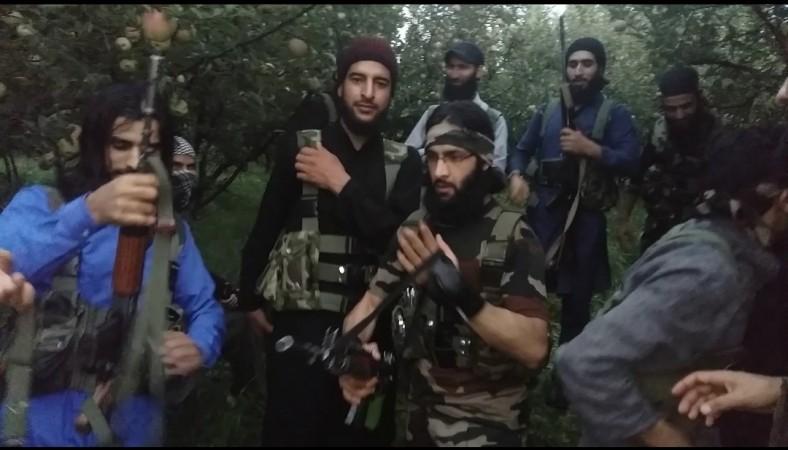
With 2018 witnessing the highest number of militant killings (230) in a decade and an unprecedented increase in violence in Jammu and Kashmir, the state government is now planning to bring back the "misguided youth into the folds of the mainstream" with its surrender policy.
As per the draft of this policy, the militants, who wish to give up arms, would be paid monthly stipends of Rs 6,000 along with jobs and other rehabilitation measures, according to The Indian Express.
Although the Narendra Modi-led government is known to adopt a tough stance over fighting insurgency in J&K, the top administration officials said that the structured surrender policy is being considered to first motivate the militants on giving up violence.
The advisor to the state government, Vijay Kumar, said that the policy draft is awaiting clearance by the Home Department and Chief Secretary BVR Subramanyam. J&K is currently under President's Rule and is being run by the State Administrative Council headed by Governor Satya Pal Malik.
Has Narendra Modi govt's stance on terrorism changed?
According to veterans and officials serving in the Indian Army, the new policy has nothing to do with the operations that target militants or their hideouts. After the Pulwama attack, PM Modi and Home Minister Rajnath Singh had reiterated that those who resort to violence in Kashmir will not be spared.

This was agreed upon by Lt Gen KJS Dhillon, GOC 15 Corps, the head of the military operations in Kashmir, that militants who pick up guns will be eliminated. However, Dhillon also said that in case, anyone among them wishes to shun the path of violence, a very good surrender policy will be put in place for them.
What happened to previous surrender policies?
Ever since the armed insurgency in Kashmir valley broke out in the 1990s, state governments have rolled out surrender policy to motivate militants to give up arms and join the mianstream.
However, the measures were often termed as inadequate by both the militants and their families. In the 1990s, many militants, who had crossed over the Line of Control to get arms training, had returned after the government announced its surrender policy. But a majority of them were used in counter insurgency operations to track active militants and their bases.
The surrendered militants came to be known as renegades and were on the hit list of militant outfits. No adequate compensation coupled with the threat of lives acted as a huge drawback as a result of which the policies could not be implemented.
In 2010, the then Chief Minister, Omar Abdullah, had asked militants who had crossed to Pakistan occupied Kashmir to return to the valley along with their families, a move that was criticised by BJP. However, the policy was not implemented in letter and spirit.

















